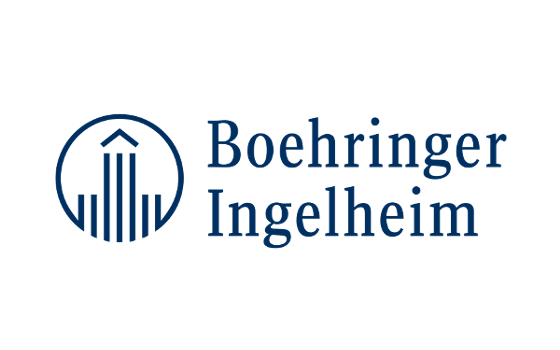 Boehringer Ingelheim presented promising preclinical data from its pan-KRAS program including the novel, oral inhibitor BI 1701963 at the AACR-NCI-EORTC International Conference on Molecular Targets and Cancer Therapeutics in Boston, USA(1). Based on these results the compound has been advanced to Phase I clinical testing alone and in combination with trametinib in patients with different types of advanced solid tumors with KRAS mutations.
Boehringer Ingelheim presented promising preclinical data from its pan-KRAS program including the novel, oral inhibitor BI 1701963 at the AACR-NCI-EORTC International Conference on Molecular Targets and Cancer Therapeutics in Boston, USA(1). Based on these results the compound has been advanced to Phase I clinical testing alone and in combination with trametinib in patients with different types of advanced solid tumors with KRAS mutations.
KRAS mutations occur in one in seven of all human metastatic cancers making it the most frequently mutated cancer-causing oncogene, with mutation rates of more than 90 percent in pancreatic cancers, more than 40 percent in colorectal cancers and more than 30 percent in lung adenocarcinomas. It has evaded attempts to develop inhibitors for almost 40 years. Only recently have promising compounds targeting the specific KRAS mutation G12C entered the clinic. There are however many KRAS gene mutations beyond G12C that drive tumor growth and have previously been 'undrugged,' such as KRAS-G12D and KRAS-G12V, which make up half of all KRAS driven cancers.
"Our pan-KRAS inhibitor has been designed to target a broad range of oncogenic KRAS variants, including all major G12 and G13 oncoproteins. Effective targeting of the most prevalent KRAS mutant alleles that have so far proved elusive could enable us to develop much needed new therapy regimens for patients with gastrointestinal and lung cancers who have limited treatment options available," said Norbert Kraut, Ph.D., Head of Global Cancer Research at Boehringer Ingelheim.
"We have a comprehensive KRAS R&D program beyond BI 1701963 and aim to develop therapies for all patients with mutant KRAS driven cancer," said Clive R. Wood, Ph.D., Corporate Senior Vice President and global head of Discovery Research at Boehringer Ingelheim. "This program is part of our strategy to defeat cancer with optimal combinations of cancer cell-directed and immune cell-directed therapies," added Wood.
BI 1701963 inhibits KRAS by binding to SOS1, which plays an essential role in activating KRAS through the exchange of RAS-bound GDP for GTP. The selective inhibition of SOS1 is a therapeutic concept that could allow KRAS blockade irrespective of KRAS mutation type. Preclinical data have shown that the pan-KRAS inhibitor blocks tumor growth for many tested G12 and G13 KRAS gene mutations, the most frequently affected residues of the protein. Further, the compound is selective for cancer cell lines with mutations in the KRAS gene.
In non-clinical studies, the combination of BI 1701963 with a MEK inhibitor demonstrated a strong impact on KRAS signaling and resulted in increased anti-tumor activity based on dual pathway blockade and complementary mechanism of action in keeping KRAS-driven cancers in check. BI 1701963 will be further developed in combination with LNP3794 a MEK inhibitor compound in-licensed from Lupin.
About Boehringer Ingelheim in Oncology
Cancer takes. Takes away time. Takes away loved ones. At Boehringer Ingelheim Oncology, we are giving patients new hope, by taking cancer on. We are dedicated to collaborating with the oncology community on a shared journey to deliver leading science. Our primary focus is in lung and gastrointestinal cancers, with the goal of delivering breakthrough, first-in-class treatments that can help win the fight against cancer. Our commitment to innovation has resulted in pioneering treatments for lung cancer and we are advancing a unique pipeline of cancer cell directed agents, immuno-oncology therapies and intelligent combination approaches to help combat many cancers.
About Boehringer Ingelheim
Improving the health of humans and animals is the goal of the research-driven pharmaceutical company Boehringer Ingelheim. The focus in doing so is on diseases for which no satisfactory treatment option exists to date. The company therefore concentrates on developing innovative therapies that can extend patients’ lives. In animal health, Boehringer Ingelheim stands for advanced prevention.Family-owned since it was established in 1885, Boehringer Ingelheim is one of the pharmaceutical industry’s top 20 companies. Some 50,000 employees create value through innovation daily for the three business areas human pharmaceuticals, animal health and biopharmaceuticals. In 2018, Boehringer Ingelheim achieved net sales of around 17.5 billion euros. R&D expenditure of almost 3.2 billion euros, corresponded to 18.1 per cent of net sales.
As a family-owned company, Boehringer Ingelheim plans in generations and focuses on long-term success. The company therefore aims at organic growth from its own resources with simultaneous openness to partnerships and strategic alliances in research. In everything it does, Boehringer Ingelheim naturally adopts responsibility towards mankind and the environment.
1. Hosted by the American Association for Cancer Research (AACR) the National Cancer Institute (NCI) and the European Organisation for Research and Treatment of Cancer (EORTC).